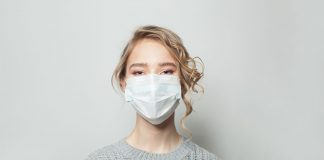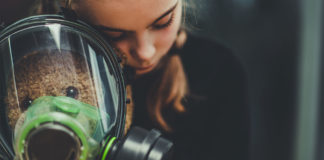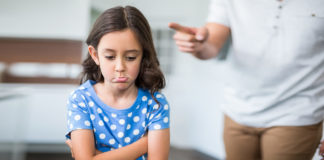The first line of defence: Proven efficacy of wearing a mask in preventing SARS-CoV-2 infection
How important is wearing a mask for preventing SARS-CoV-2 infection? We must say, at the outset, that wearing a mask remains important in preventing SARS-CoV-2 infection, especially because the "delta plus" variant has a high potential for contagion.
COVID-19: How to stay efficient at work when your kids are near
How can one be efficient with your tasks when you no longer have an office of your own? How can one divide themselves between children, household chores and deadlines? How can one excel in their job without losing their mind or at least their patience? These are questions I had to face during the pandemic, even if working from home, around children, is...
Evidence-based medicine: How to set a foundation for trusting the doctors
How can I be sure that the recommendations I receive after a medical consultation are correct? In the article below, we discuss evidence-based medicine.
COVID-19: Lessons on happiness from an invisible teacher
When life takes a bad turn, we are often tempted to console ourselves with nostalgia. We begin to look at the past in a different light. We realise that we had been too demanding of ourselves, of others, of the world. That even though we had everything we needed we still wanted more. That we were always looking for something else, without paying...
Coronavirus health information: The great dilemma of quality sources
What are the most reliable sources of information on the coronavirus, and what are the arguments that advocate for their reliability?
Life after lockdown: a return to the rat race?
On any given day, a typical person checks the clock several dozen times.
Shutters down all over Europe: life in the time of the new coronavirus
These days we all need to hear good news—that life will soon return to normal and that we will be able to return to the troubles of yesterday, which now seem small to us. In the meantime, our lifestyle has seen changes that we could not have imagined just a few weeks ago.
COVID-19: What I have learned from my Italian friends
Antonio is a grandfather of 69 years old. For 40 years, he has worked as an internist. Just a few days ago, his plans for a quiet retirement suddenly changed. Out of his own free will, Antonio decided to return to work as a doctor in order to help patients suffering from COVID-19.
COVID-19: Hope overcomes the fear of the unknown
In the spring of 1936, the members of the Lykov family made a decision that would change their lives forever: they disappeared into the Siberian taiga, completely isolating themselves from the world for the next 40 years.
Protect yourself from the infodemic. Which doctors give us reliable information about COVID-19?
In addition to the COVID-19 pandemic, caused by the coronavirus, an "infodemia" is spreading, as described by the World Health Organization (WHO). The overabundance of information, some false or incomplete, about the virus, about its origin and effects, as well as the measures taken by the authorities to combat the pandemic reduce people’s chances of finding reliable information about COVID-19 and the advice...
COVID-19: Seeds of goodness in the midst of the pandemic
In recent weeks, we have all experienced a state of unrest. Our eyes have been on the rising numbers of COVID-19 infections, as we try to comply with the restrictions imposed by the state of emergency. But we have also had bright moments, moments we might not have anticipated just a short time ago.
How can we prepare for a potential infection with COVID-19?
Although a small minority deny the existence of COVID-19 (claiming that it is a malicious conspiracy), most people are interested in what they can do to be as prepared as possible for a potential encounter with the dreaded virus.
COVID-19: What we have (not) missed during the lockdown
Life in lockdown had an atypical rhythm and texture. While for some this upset their daily lives, for others it was an unexpected response to an unspoken need.
How to manage parent-child conflicts during the pandemic
One can hardly overestimate the role the relationship between a parent and their child plays in forming a matrix for the child’s future relationships, whether healthy or dysfunctional. The quality of the parent-child relationship is essential because it directly impacts the child’s social and emotional development, and its quality influences the child's ability to deal with future conflict.
COVID-19 after vaccination: How much does vaccination protect us?
Why can vaccinated people still get COVID-19 or even die from the disease?


























